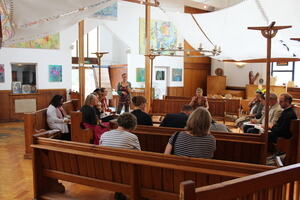Course overview
- Provider
- Futurelearn
- Course type
- Free trial availiable
- Deadline
- Flexible
- Duration
- 3 hours
- Course author
- Wander Jager
Description
Have you ever wondered how a tiny virus can spread across the planet, how people share false information through social media, or why people abide by group norms, even when they are harmful? With easy-to-use computational models you will explore the social dynamics explaining these processes.
This brand-new course from computational social science experts at University College Groningen and the University of Warsaw explores how networks form, and how they impact the spreading of different types of information in society.
Discover social network analysis tools, structures, and modellingOn this course, you’ll get to grips with the basics of social network theory, before considering how different social exchanges impact network structures and dynamics of opinion and product choice.
You’ll learn how the way we communicate, and even share viruses, is shaped by social network structures that existed in our tribal history, and have expanded in modern society.
Identify patterns of social interaction and explore social influence theoryYou’ll learn how social influences play out in larger networks, as you explore what impact small scale tribal mechanisms, like local norms, have on global network dynamics.
Study social network theory with computational social science (CSS) expertsThis course has been designed as a collaboration between University College Groningen, the University of Warsaw, and Humboldt Institute for Internet and Society.
Warsaw and Groningen are experts in CSS, and this course offers students the chance to learn from four leading social science scholars.
Similar courses

-
Flexible deadline
-
2 hours



